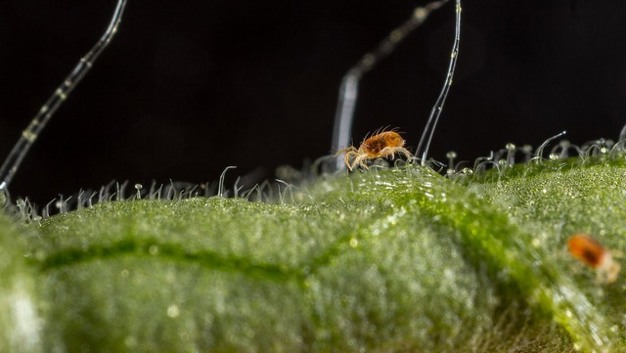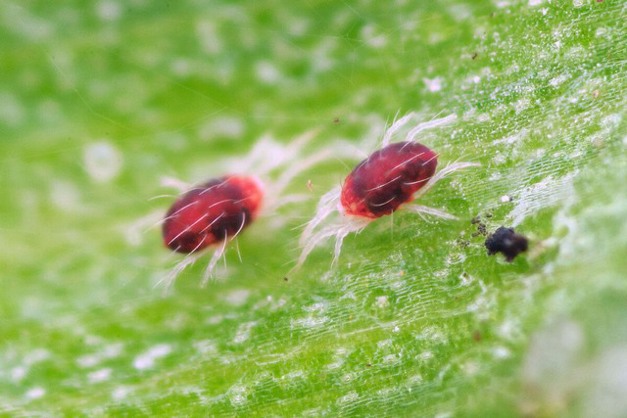Spider mite is the favorite food of the predatory mite in Spical, whose appetite for all species of spider mites means it can be used in many crops. It’s an effective biocontrol solution against the entire ‘spider mite family’!
Harmful spider mites come in all sorts of species and sizes. Most spider mites (and there are 1,200 different species) make characteristic, small webs – usually on the underside of the leaf, but this may cover the whole crop in particularly with severe infestations. The predatory mite in Spical, Neoseiulus californicus, attacks all species of spider mite:
Two-spotted spider-mite

The best-known and most widespread harmful mite is the two-spotted spider mite (Tetranychus urticae). This spider mite drives quite a few growers around the world to despair. If conditions are hot and dry, you can almost guarantee that the two-spotted spider mite will rear its ugly head. A big advantage of the predatory mites in Spical, is that you can use them at an early stage. If they can’t find enough spider mites, they’ll just eat something else such as other mites, insects, or pollen, so that they’re always ready to pounce when needed.
Fruit spider mite
The fruit spider mite (Panonychus ulmi) is a pest in apple, pear, plum, cherry, rose, raspberry, and blackberry cultivation. There’s often a biological balance with naturally occurring predatory mites. But this equilibrium can falter, leading to an explosion in fruit spider mite numbers. Spider mites can also quickly become resistant to chemicals, so Spical really is the ideal solution.
Citrus mite
The citrus mite (Panonychus citri) is not only a problem in citrus fruits but also in tree nursery crops, such as Skimmia. Spical is a perfect part of a biological control strategy.
For more information:
Koppert Biological Systems
[email protected]
www.koppert.com
